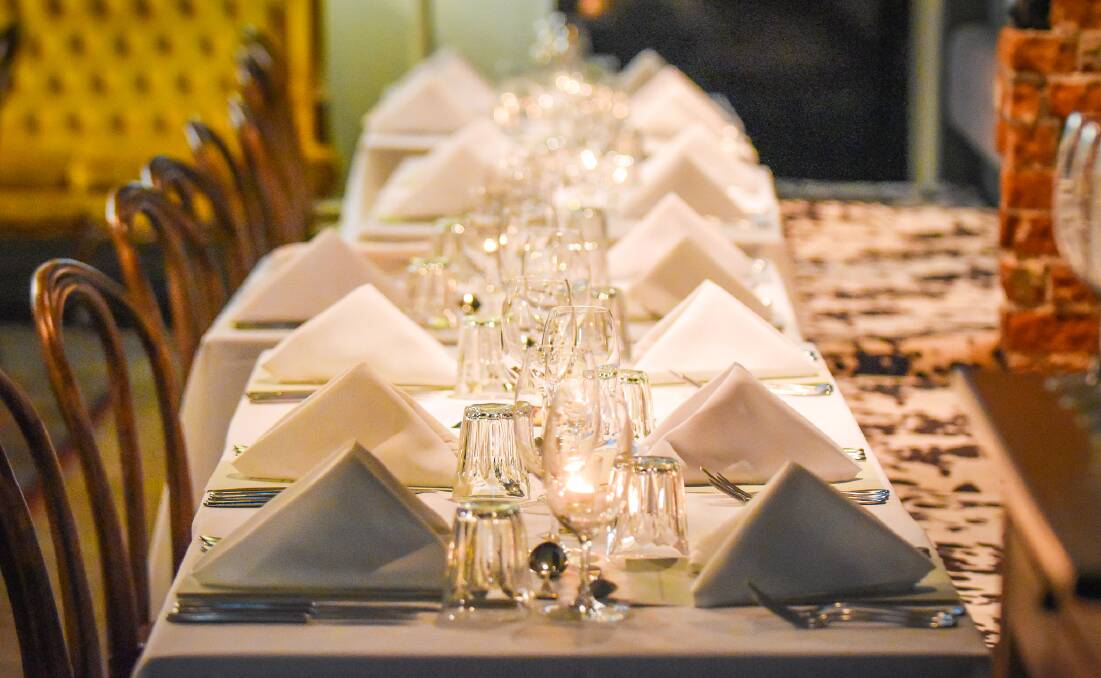
Get to a certain age and level of dining experience and you will have amassed an entire casserole’s worth of stories about terrible meals and unpleasant restaurants.
Create a free account to read this article
$0/
(min cost $0)
or signup to continue reading
I recall a battered fish, comparable to fried cardboard only minus the taste, battered being the operative word. A particular waiter comes to mind and I remember the relief we felt when it became clear the catastrophic service was not the result of a language barrier – we tried four over the course of the meal – but simply good old-fashioned incompetence and a stunning lack of concern about it in whatever language you cared to name.
A ‘lamb curry’ sticks in my memory (and probably still elsewhere: I promise the only parts of the animal used were the horns) and there was one tragic meal somewhere deep in the countryside of Nagasaki Prefecture that was so unremittingly bad – every part of it, from the decor to the mismatched chopsticks, and then the food arrived – that we were lost to hysterical laughter before we even left the restaurant.
An atypically cruel response, but then a certain cruelty is warranted when presented with such a bad meal: we have been denied that most basic of human enjoyments, a pleasant moment of sustenance, and an animal savagery growls up from our empty bellies and we lash out.
This is why we love bad reviews. We love to read them and those of us who row in the galleys of print love to write them.
We really, really love to write them.
But here at the Mail it is a pleasure we deny ourselves, sainted champions of the table that we are. Hospitality is a tough enough game at the best of times and if we write about restaurants, it is from an I-love-this-place! point of view rather than from the craggy, accipitrine perch of the critic.
And to be honest we’d rather be stuffing food into our mouths and comparing wines rather than writing, anyway.
We are true journalists that way. Research is important. Very, very important.
But what does it mean to sit in judgement of those who would make an honest living feeding us and making us happy? Anyone can have an off night which is why multiple visits are necessary before any review can be considered and, lacking expense accounts these days, there are few journalists who can afford such rigour.
In the meantime, ask me anything about cup noodles. I am becoming an expert.
And how can one possibly judge those memorable nights of meals whose magnificence outstrips their humble ingredients, evenings when magic happens and the cheap wine tastes like a fine Bordeaux and a hastily cobbled together pasta bianca glistens with the last of the butter, the fridge bare but our hearts full, everything made brighter by the deliciousness of the guests?
No, it is fun to pretend to a level of sophistication whereby we can cast our considered opinions willy-nilly to the page like crumbs across the white of a tablecloth, but you get about the same nourishment and satisfaction as you would from the crumbs.
One of the greatest meals I’ve ever had – I’m convinced I will relive this meal on my deathbed – was in a tiny little cheap-as-dirt B&B on the west coast of the Izu Peninsula in Japan. Etsuko and I had checked in and the woman running the place had made us some tea and gone to get things ready for the evening meal.
After a while she came back and very apologetically explained that she would like to change the menu for dinner: her husband was a fisherman and had had a very good catch of squid that day. Did we like squid?
Yes, we most certainly did. Dinner that night was simply a squid, fresh off the boat, gutted, cleaned, and sliced raw.
The first bite sent us into a kind of rapture from which, decades later, I have yet to fully emerge. This will sound ridiculous but that squid changed my life. I am a better person for having eaten that meal, kinder, happier.
A good meal can do that, change your life, but so can a bad review. Eat out somewhere new tonight. Award some stars. And enjoy.
– Jeremy Hedley


